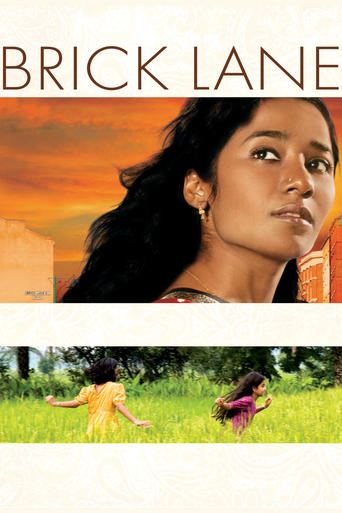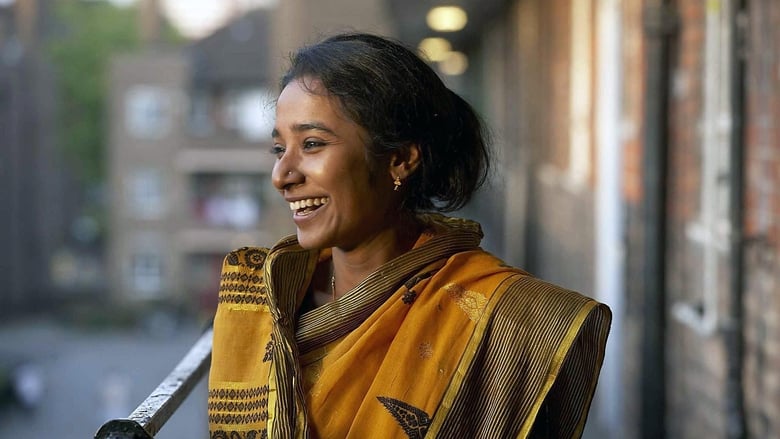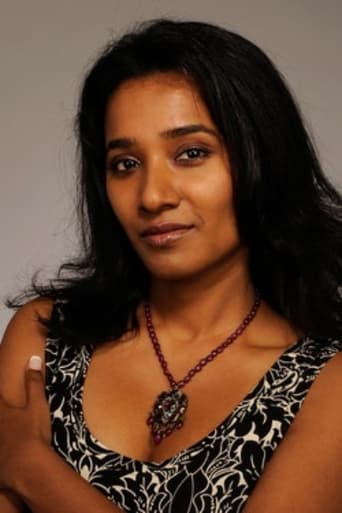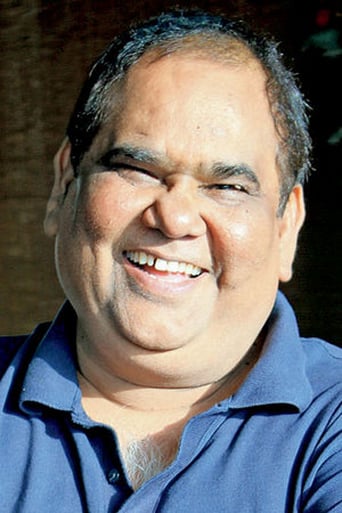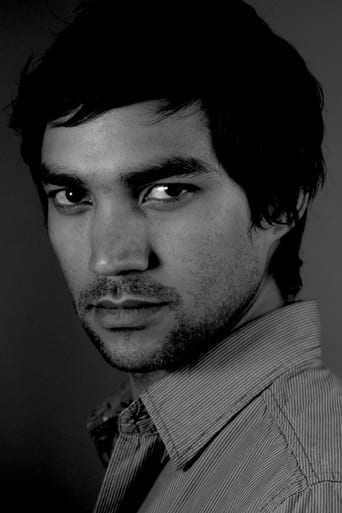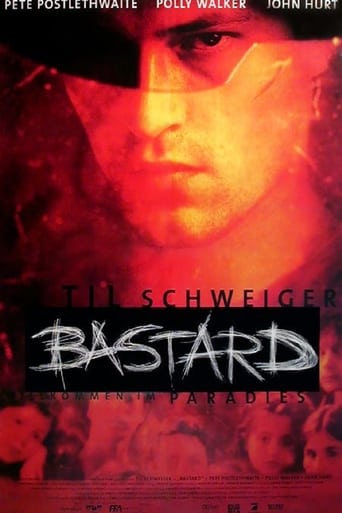Brick Lane (2007)
The grind of daily life as a Brick Lane Bangladessi as seen through the eyes of Nazneen (Chatterjee), who at 17 enters an arranged marriage with Chanu (Kaushik). Years later, living in east London with her family, she meets a young man Karim (Simpson).
Watch Trailer
Cast
Similar titles


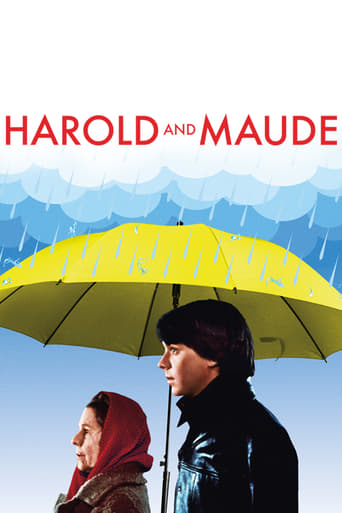

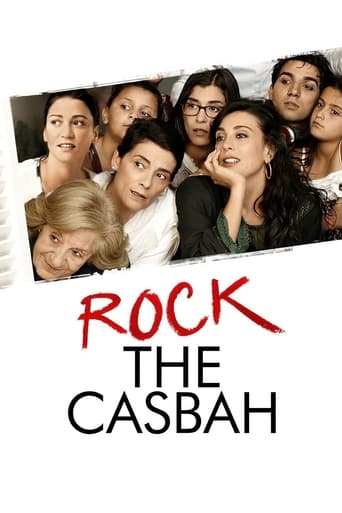
Reviews
I like the storyline of this show,it attract me so much
Simply Perfect
It's complicated... I really like the directing, acting and writing but, there are issues with the way it's shot that I just can't deny. As much as I love the storytelling and the fantastic performance but, there are also certain scenes that didn't need to exist.
There's no way I can possibly love it entirely but I just think its ridiculously bad, but enjoyable at the same time.
I'm sure Brick Lane will strike some kind of chord with those depicted within, namely British based immigrants from the sub-continent, as everything from the struggling to adjust to a new life and culture right the way through to having to face discrimination from the locals, is detailed. For the rest of us, the film is nicely effective enough in its dramatic qualities to somewhat enthusiastically recommend, as the plight of a frustrated middle aged woman of Bangladeshi descent, whom strives to work things out with her husband; maintain the mothering of two daughters and just generally get by, is explored. The film revolves around this family and a handful of characters whom live in London's Brick Lane Muslim community, but there is no reason Sarah Gavron's film should be a film limited to representing just the British Muslims living there, more-so representative of those throughout the United Kingdom as a collective whole. An additional sense of refreshment arrives in the form of the film revolving around a woman, detailing the tribulations of a female living under British conditions but not enjoying this apparent promised land and suffering similar hardships at the hands of her husband as she might indeed go through back home anyway.This lead is Nazneen (Chatterjee), a woman we observe walks down the titular Brick Lane amidst the bricked up walls; market stalls and generally cramped, enclosed locale after having previously dreamt of her home land in Bangladesh as this tranquil, beautiful and apparently elusive paradise she strives to be at one with. The dreams of being back at home stem from the letters she receives from her sister, detailing a free and spirited life away from arranged marriages and enclosed living; the montages and sequences of Bangladesh in stark comparison to how Gavron shoots Nazneen in London, as her face fills the frame and she keeps a look out on all sides of the screen suggesting awareness; paranoia and disdain. Nanzeen lives with husband Chanu (Kaushik), someone much elder than she is and a suitor whom was the result of an arranged marriage, and the two aforementioned daughters in Bibi and Rukshana. Nazneen is additionally haunted by the memory of her own mother taking her life many years ago.One would assume the point Gavron is trying to make through Brick Lane, and I'd additionally assume a similar idea filters through in the novel on which this is based, is that the idea of sub-Continent immigration to the British Isles brings about the antithesis of what glories and riches the Western world appear to promise. In living in Britain, few can doubt husband Chanu's success story in owning an apartment; earning much in the way of money and possessing a decent job in computing, but what about the women whom are forced to tag along? The film's view on their stance has us believe it leads them to longing for a life back where they were; that the temptation to commit infidelity arises and that this life does nothing but spur on the woman of the relationship to garner her own job, all under this canopy of individualism and independence – the trouble being that, highlighted through Chanu, it tears the family apart as the cracks in the plan to arrange marriages and ship on out of places like Bangladesh to the First World as soon as possible for as long as possible begin to dramatically appear.If Chanu means well, then it is a meaning well that rejects British, indeed Western, attitudes. A crucial scene sees Chenu bring home a computer and attempt to hook up to the Internet, something one of the daughters rejects in her turning away of modernity; embracing of independence and continuous talk of wishing, like her mother, to be back home in Bangladesh instead of dwelling in London. Nazneen's venturing astray from her husband and the world in which she finds herself sees her land a romantic relationship in the form of an affair with a young fabric salesman named Karim (Simpson), whom visits her during the day when Chenu is at work. He is unlike Chenu, he stands in in stark binary-opposition to him in that he's younger, slimmer and much more enthusiastic about Nazneen's idea of being a tailor and thus engaging in a profession; something it appeared Chenu saw as a threat to his masculinity as an apparent bread-bringer. One such scene sees Gavron shoot one of their more intimate scenes amidst a cluster of wine bottles colouring the screen in a blood red as the other half of it retains a clearer, whiter hue; thus highlighting the clashing senses of both danger in the illegality of the event juxtaposed with the supposed liberation she feels in being with Karim. Film aficionados will have already picked up on the inclusion of David Lean's mid 1940s melodrama Brief Encounter, a film Nazneen glares at as it plays on television as the item of an extra marital affair emerges.In what is a film that rejects the view of Asian immigrants coming to Britain for a far better existence, particularly in regards to the women, the film is equally stern in its toying with other conventions or 'expectations'; a local loan shark is this elderly, eccentric woman and the love story between Nazneen and Karim seeing the female participant of the relationship objectifying the male and using him for a sexual release rather than the other way around. The film saves its richest example of symbolism for the very end when it uses a train station complete with a number of tracks visibly heading off into a number of different tunnels and directions as emotions and the want for escape, or liberation, reach agonising peaks; suggesting forks in life that break off down dark, looming routes into the unknown. The film balances its ranging content of social, racial and gender commentary studiously; culminating in an interesting drama about an immigrant family coming apart.
To begin with, I do not care for women filmmakers, especially their self-congratulatory commentary and "women as victims" slant, which is why I initially found the lack of English subtitles or captions for the hearing impaired so unforgivable. English as spoken in Britain is my native language, but I could not understand the Bengali accented English in the film. As a result, I could not follow the plot and resolved to check out the book. Eventually I found the captions by accident when I switched on subtitles for the special features, and after returning to the film, they came on. The DVD box did not list captions. I rated the film a 7, as it is a very interesting and absorbing film which made made think about for a few days. No one in the film is bad or good, and you are able to sympathize with all the characters, even the elderly widowed moneylender. For me, the husband was the saddest character. His youthful dreams had come to nothing despite his education, he was passed over for the civil service and reduced to menial jobs in middle age. He had always dreamed of returning to Bangladesh as a successful man, but his failure to achieve success led to him staying on in Britain where he was not really welcome. Even his two daughters were ungrateful and alienated, perhaps because being British born they saw him as foreign. If the husband and wife had been able to communicate things might have been better, but although married and living in a tiny over-furnished flat, they seemed to live separate lives.
Although I've never read the novel, I approached Brick Lane with the same devil may care attitude I always do for films dealing with another culture. What I got was something akin to a Southern Asian soap opera. Nazneen (the central character)had been the unwilling pawn in an arranged marriage to an older Bangladeshi man, who moved her to London's east end. What follows is several years of an unhappy marriage later, she is employed as a seamstress, and becomes involved with another man with a passion for politics. Along the way we are treated to the usual array of emotional outbursts,political leanings, and other cannon fodder that makes for a smartly photographed, but rather humdrum film that will probably be of appeal to the South West Asian community (i.e. India,Bangladesh,Sri Lanka,Pakistani).
Contains very mild spoilers. The characters in Brick Lane appear boxed into a confined, restricting little world (aren't we all...?). The film's main character is a housewife, Nazneen (played by Tannistha Chatterjee), who habitually recalls childhood memories of green, open spaces and rural life in Bangladesh and shares her private sadness with the viewer that her soul is denied a sense of freedom. Tensions, frustrations and puzzlement about life and where it is going has as it's main back-drop, the interior of a small East London flat.Nazneen's proud, precise, well-read husband is not immediately endearing (in what appears to be a loveless marriage), but subsequently reveals his hidden depths on two occasions in particular; one concerning his Faith (in the presence of his community), in the wake of '9/11' (2001); the other concerning a significant choice about his family's future.Nazneen's sister is never far from her thoughts and the arrival of her letters from Bangladesh have the effect of sustaining Nazneen in the belief that her sister has found love and happiness. Nazneen's only expression of real defiance directed at her husband concerns one of the letters. The correspondence between the sisters remarks on how we tend to put the reader's feelings before our own, when posting a little piece of our world overseas.The film explores how one discovers a hidden self and qualities that duty, force of habit, the day-to-day, and the expectations of others, forces us to deny and conceal - ultimately to our own personal loss, leaving our relationships with those we love the poorer for it.One character in the film is a corrupt elder in the community described as a 'userer' (loan shark!). She supplies a fascinating, malevolent contribution - until Nazneen, waking up to her own inner strengths, challenges her.The film can perhaps best be summarised by the words of Nazneen's husband who later concludes admiringly that the woman he married (who has lived in his shadow some twenty years), was not a 'girl from the village'; implying that Nazneen's simple rural roots belied her wit and savvy. Another important point that should not be lost, is that Nazneen's place (for the most part denied her), in shaping the family's destiny influences their young daughter's lives; growing up essentially in two cultures.Expect a small, compelling cast; admirably directed, scripted and acted throughout. A brave, beautiful film that handled sensitive issues with sensitivity, brought a tear to the eye...and a measure of hope.
